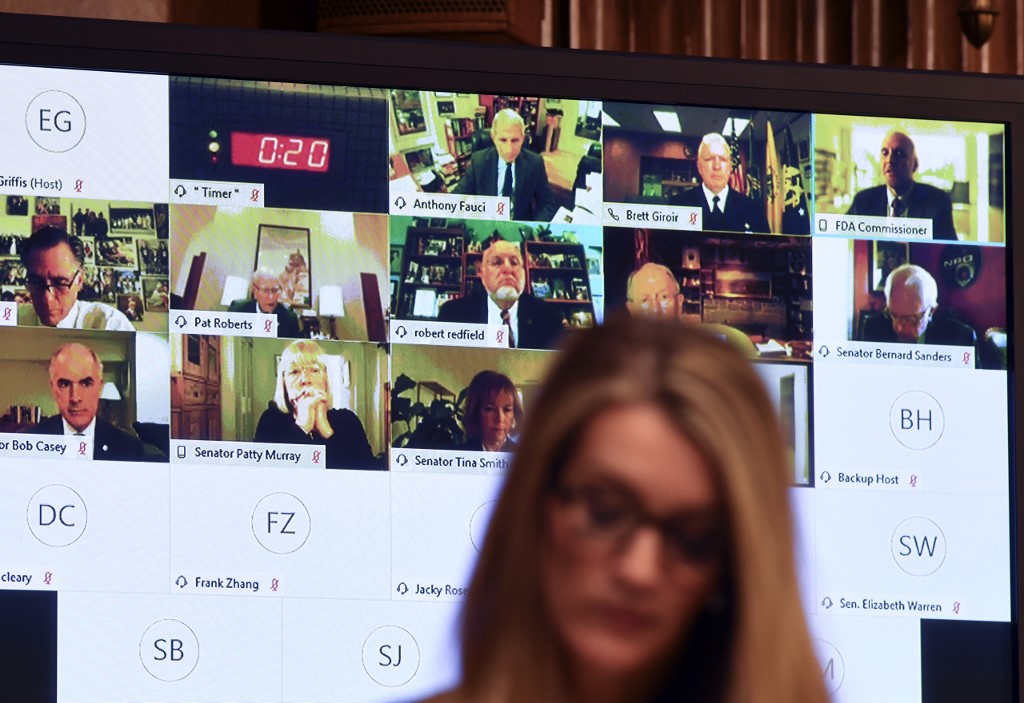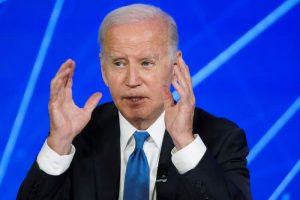US Republican senators proposed legislation on Tuesday that would empower President Donald Trump to slap sanctions on China if Beijing does not give a “full accounting” for the coronavirus outbreak.
“The Chinese Communist Party must be held accountable for the detrimental role they played in this pandemic,” said Senator Jim Inhofe, one of the sponsors of the “Covid-19 Accountability Act.”
“Their outright deception of the origin and spread of the virus cost the world valuable time and lives as it began to spread,” he said in a statement.
The legislation will give Trump 60 days to certify to Congress that China has provided a full accounting on the Covid-19 outbreak to an investigation that could be led by the United States and its allies, or a United Nations body like the World Health Organization.
Trump must also certify that China has closed its highest-risk wet markets and released Hong Kong activists arrested in post-Covid-19 crackdowns.
Without certification, Trump would be authorised under the legislation to impose sanctions like asset freezes, travel bans and visa revocations, as well as restricting Chinese businesses’ access to US bank financing and capital markets.
“China refuses to allow the international community to go into the Wuhan lab to investigate,” said Senator Lindsey Graham, another sponsor of the bill. “They refuse to allow investigators to study how this outbreak started. I’m convinced China will never cooperate with a serious investigation unless they are made to do so.”
Risk of uncontrollable outbreaks
Meanwhile, the US government’s top infectious diseases expert warned Congress on Tuesday that ending lockdowns too soon could trigger fresh and uncontrollable outbreaks of Covid-19.
In his first appearance on Capitol Hill in two months, Anthony Fauci delivered a cautionary message at odds with the rhetoric of President Donald Trump, who has pressed for rapid steps to rekindle the devastated economy.
The respected scientist told a Senate panel that federal authorities had developed guidelines on how to safely reopen activities, with a sustained 14-day decrease in cases as a vital first step.
“If a community or a state or region doesn’t go by those guidelines and reopens… the consequences could be really serious,” said Fauci. “There is a real risk that you will trigger an outbreak that you may not be able to control,” he added, warning that would not only cost lives “but could even set you back on the road to trying to get economic recovery.”
Responding to a question from Senator Bernie Sanders, Fauci acknowledged that US coronavirus deaths are likely higher than the official toll of roughly 80,000. This was because many people – particularly in New York – died at home before they could be admitted to a hospital.
Fauci said he was “cautiously optimistic” about the prospects of a vaccine, with eight candidates undergoing clinical trials, including one made by the firm Moderna which is closely collaborating with the National Institutes of Health, where he is a senior official.
“We have many candidates and hope to have multiple winners,” Fauci added. “In other words, it’s multiple shots on goal.”
Fauci, who has become the trusted face of the federal government’s virus response, was one of four top medical experts testifying remotely to the Senate Health, Education, Labor and Pensions Committee. He was in “modified quarantine” after Vice President Mike Pence’s spokeswoman – with whom he had no close contact – tested positive.
Jilin in partial lockdown
In related news, a northeastern Chinese city has partially shut its borders and cut off transport links after the emergence of a local coronavirus cluster that has fuelled growing fears of a second wave of infections in China.
Jilin, with a population of more than four million, suspended bus services and said it will only allow residents to leave the city if they have tested negative for Covid-19 in the past 48 hours and complete an unspecified period of “strict self-isolation”.
AFP
























